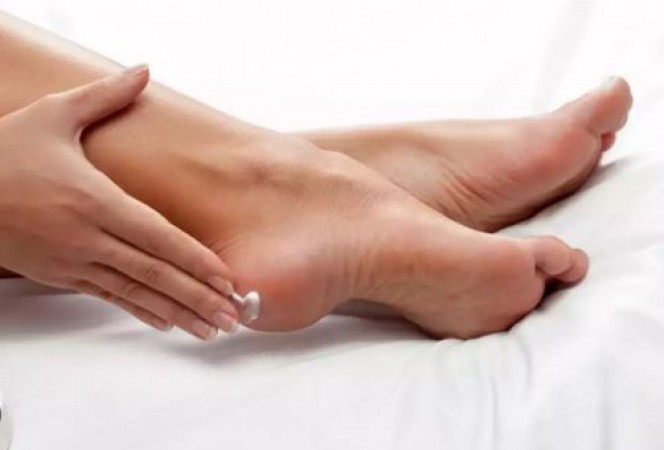
Cracked heels, medically known as heel fissures, are a common foot ailment that affects people of all ages. These painful and unsightly cracks occur when the skin on your heels becomes dry, thick, and sometimes even split. While they may not pose a significant health risk, they can be a nuisance and a source of discomfort. In this comprehensive guide, we will delve deep into the causes of cracked heels and explore a plethora of effective remedies and preventive measures to ensure your feet stay smooth and healthy.
Identifying the Culprits
Cracked heels can be attributed to a variety of factors, and understanding these causes is the first step in finding an effective solution.
1. Dry Skin
One of the primary causes of cracked heels is excessively dry skin. When the skin on your heels lacks moisture, it becomes brittle and prone to cracking.
Dry skin can be caused by various factors, such as low humidity, frequent exposure to water, or even certain medical conditions like eczema.
2. Prolonged Standing
Spending long hours on your feet can put extra pressure on your heels. The constant strain on your heels can cause the skin to thicken and eventually crack.
Jobs that require prolonged standing, like teaching, nursing, or retail, can make individuals more susceptible to this condition.
3. Improper Footwear
The shoes you wear play a significant role in the health of your feet. Ill-fitting or unsupportive footwear can contribute to the development of cracked heels.
High heels, sandals with no arch support, and open-back shoes can exacerbate the problem by increasing friction and pressure on your heels.
4. Harsh Weather
Extreme weather conditions, both hot and cold, can have detrimental effects on your skin. In very hot weather, your skin may lose moisture rapidly, while in cold weather, the lack of humidity can lead to dryness.
Additionally, exposure to direct sunlight without proper protection can worsen the condition.
5. Skin Conditions
Certain skin conditions like eczema and psoriasis can make you more prone to cracked heels. These conditions often affect the skin's ability to retain moisture, leading to dryness and cracking.
Understanding the underlying causes is essential as it allows you to address the root of the problem and choose the most appropriate remedies and preventive measures.
DIY Solutions at Home
Taking care of your feet doesn't need to be an expensive or time-consuming affair. Many effective remedies can be done in the comfort of your home.
1. Soak Your Feet
A simple yet highly effective remedy is to soak your feet in warm water. This helps soften the skin and makes it easier to remove dead skin cells.
To make the foot soak even more relaxing and beneficial, consider adding Epsom salt or a few drops of essential oils like lavender or tea tree oil.
The Procedure:
2. Exfoliation
Exfoliation is a crucial step in getting rid of cracked heels. By removing dead skin, you not only improve the appearance of your heels but also encourage healthier skin growth.
The Procedure:
3. Moisturize Regularly
Regular moisturization is key to keeping your skin hydrated and preventing further cracking.
The Procedure:
4. Wear Appropriate Footwear
Selecting the right footwear is crucial in preventing cracked heels. Supportive, comfortable shoes are your best allies.
The Procedure:
5. Hydrate
Hydrating your body from the inside is just as important as applying external treatments.
The Procedure:
Professional Help
In some cases, home remedies may not be sufficient, and it's advisable to seek the assistance of a healthcare professional.
1. Podiatrist Consultation
A podiatrist is a specialized foot doctor who can diagnose the root cause of your cracked heels and recommend appropriate treatment.
The Procedure:
2. Prescription Creams
For more severe cases, a podiatrist or dermatologist may prescribe medicated creams or ointments to help heal the cracks and hydrate the skin.
The Procedure:
3. Paraffin Wax Treatment
Paraffin wax treatments are a luxurious spa option that provides deep hydration and relief for cracked heels.
The Procedure:
Preventing Future Cracks
Prevention is the key to maintaining smooth heels once you've treated the issue.
1. Regular Foot Care
After you've successfully treated your cracked heels, don't let your guard down. Continue to moisturize and exfoliate your feet regularly to prevent a recurrence.
The Procedure:
2. Stay Hydrated
Maintaining overall skin health starts from within. Staying hydrated helps keep your skin, including your heels, healthy.
The Procedure:
3. Choose the Right Footwear
Investing in comfortable, supportive shoes is essential in preventing future heel issues.
The Procedure:
4. Use Heel Balms
Specialty heel balms and creams can help maintain skin moisture and prevent dryness.
The Procedure:
5. Watch Your Diet
A balanced diet can significantly impact the health of your skin, including your feet.
The Procedure:
Cracked heels can be a painful and embarrassing problem, but with the right care and attention, you can achieve soft and smooth heels once more. Whether you opt for DIY solutions or seek professional help, the key is consistency and preventive measures to ensure your heels stay healthy and pain-free.
Can drinking cold water be harmful to health? Know expert advice
Exploring the Gaza Hospital Blast: Top 10 Key Highlights
Avoid These Mistakes to Reduce the Risk of Breast Cancer Today